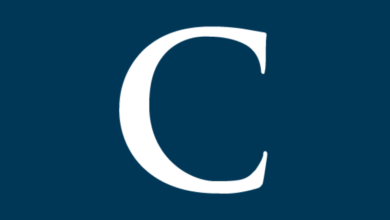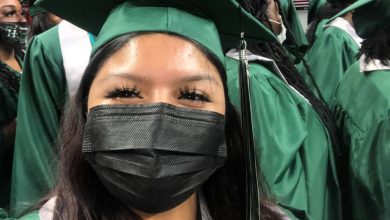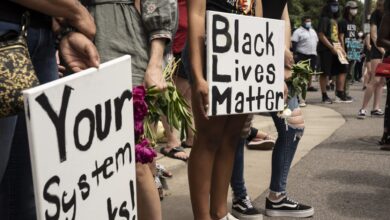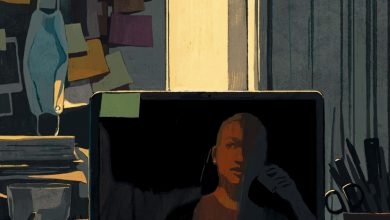Colleges Envisioned a Near-Normal Fall Semester. Then Came the Delta Variant.
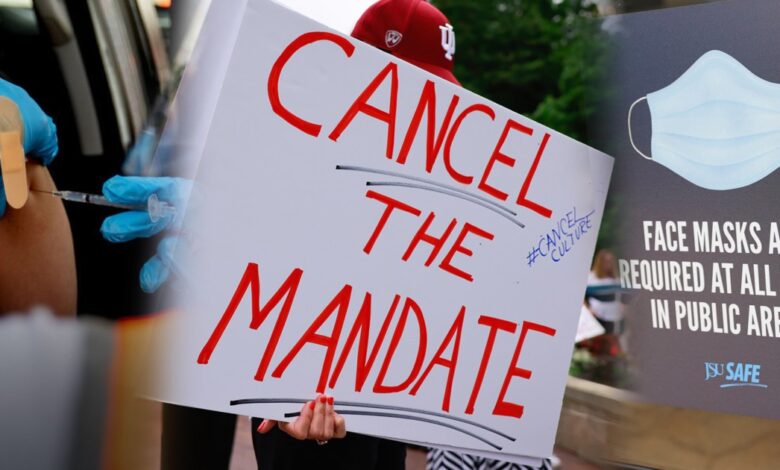
[ad_1]
Loretta N. McGregor, a psychology professor at Arkansas State University, missed the energy of being on campus, and the lab help she’d get from undergraduate researchers. “One of the reasons we work in higher education is because of interactions with students,” she said.
Stephen E. Caldwell, an associate professor and chair of campus faculty at the University of Arkansas at Fayetteville, has a child with medical conditions that mean “bringing Covid home to him is not an option.” But by May, after Caldwell had been vaccinated for a few months and cases were dropping, he felt ready to teach in person, with no mask.
With transmission at a trickle in the spring, and millions of Americans getting vaccinated every week, it looked then like colleges would realize a best-case scenario for the fall: a near-normal semester. But over the past few weeks, that prospect has begun to change.
One of the reasons we work in higher education is because of interactions with students.
The more-transmissible delta variant of the coronavirus, plus relatively low vaccination rates in some states, have pushed new national cases higher than they’ve been in months. Reports that even vaccinated individuals may get and transmit the coronavirus, when they’re exposed to enough of it, have undermined the security that vaccinated people may feel around unvaccinated colleagues and neighbors, even though “breakthrough” infections, as cases among vaccinated people are known, are less likely to be severe or passed on to others.
In response, several colleges have made late announcements that they’ll require their students, staff, and faculty to be vaccinated. The largest four-year public system in the country, California State University, announced this week it would enact such a mandate even though it had previously said it would wait for the Food and Drug Administration to fully approve the vaccines. It cited the variant as one factor in its decision. Colleges are also rethinking previously announced mask policies, in light of guidance on Tuesday from the Centers for Disease Control and Prevention recommending that even vaccinated people wear masks indoors, in counties with higher case rates.
Meanwhile, in some of the hardest-hit parts of the country — like Arkansas — state laws are stymying colleges’ ability to wield vaccine and mask mandates to prevent infections.
“We’re walking into a worse situation medically, and with less tools to combat it,” Caldwell said.
Herd immunity has been a shifting and imprecise goal throughout the pandemic. The emergence of the Delta variant made Kaler and his team think they needed very high coverage. They’re now aiming for 95 percent. Before their mandate, about 70 percent of students, staff, and faculty had voluntarily uploaded their vaccine cards.
Similar language and reasoning — the situation is worsening, and incentives haven’t cut it — played into late-game vaccine mandates from Adelphi University, in New York, and Augsburg University, in Minneapolis, and the Vermont State Colleges system. At Adelphi, only 26 percent of students have reported being fully vaccinated against Covid-19. Administrators are aiming for 70 percent, said Kenneth C. Rondello, an assistant professor of public health and the university’s epidemiologist.

Chronicle illustration, photos from Getty Images and AP Images
At Cal State, it was the realization that Food and Drug Administration approval wouldn’t come in time, as well as climbing hospitalizations due to the Delta variant, that prompted Joseph I. Castro, chancellor of the system, to change course.
“Many of us thought that we were headed for daylight,” Castro said. “But this Delta variant has created some ambiguity, and I think we need to watch it carefully and make the best decisions possible for students, faculty, and staff.”
Many colleges didn’t need any extra reason to require vaccines Some were doing so as early as April, according to The Chronicle’s tracker of such policies. It’s always been true that having a fully vaccinated campus “gives you a lot more options for what you can do,” said H. Holden Thorp,editor in chief of the Science journals and a former chancellor of the University of North Carolina at Chapel Hill. However, he thought there was some ill luck involved: The Delta variant was “particularly badly timed” for the start of the fall term, he said.
Leaders at many late-mandating colleges that The Chronicle spoke with acknowledged a crunch to get people fully vaccinated. Case Western’s Kaler, however, said that the five and a half weeks between the university’s announcement and the first day of fall classes “feels like enough time to me.”
“We’re offering it for free on campus,” he said. “It takes you 15 minutes to walk over, get a shot, and come back to work. It doesn’t feel like you need months to get that done.”
The Delta variant is “particularly badly timed” for the start of the fall term.
In states where vaccination rates are lowest, colleges are relying on the same sorts of tactics that institutions like Case Western Reserve and Adelphi found weren’t adequate to get anywhere near herd immunity.
Mississippi, which does not outlaw vaccine requirements at public institutions, has the lowest vaccination rate in the country. At Mississippi State University, administrators will place 16 different pop-up vaccine clinics throughout campus — at a welcome BBQ, in student residence halls, and near sorority or fraternity houses. Like many campuses, Mississippi State also has incentives like meal dollars and book vouchers for students who show proof of vaccination. There will be a raffle for tuition credit.
“We’ve been in the vaccine business for a while at this point,” said Regina Hyatt, vice president for student affairs.
But the university will not be able to house hundreds of students in isolation if there’s an outbreak, she said. Last year, Mississippi State used nearby hotels to isolate students, but this year, those hotels are booked. Similarly, Texas Tech University has said it’s requiring students who test positive for the coronavirus to self-isolate, but it won’t provide space or resources to do so, the student newspaper reported.
In not requiring the vaccine, Mississippi State has plenty of company. Out of the more than 3,000 degree-granting institutions in America, only 611 campuses had enacted some kind of requirement as of Wednesday, according to The Chronicle’s tracker.
In Arkansas, Caldwell isn’t sure exactly how he’ll structure his classes in the fall. He just knows that he’s expected in the classroom, so he’ll be there. McGregor said she would be relying on a combination of a mask, a face shield, and efforts to stay socially distant to teach. Both expect that between now and mid-August, their plans could change again.
[ad_2]
Source link



